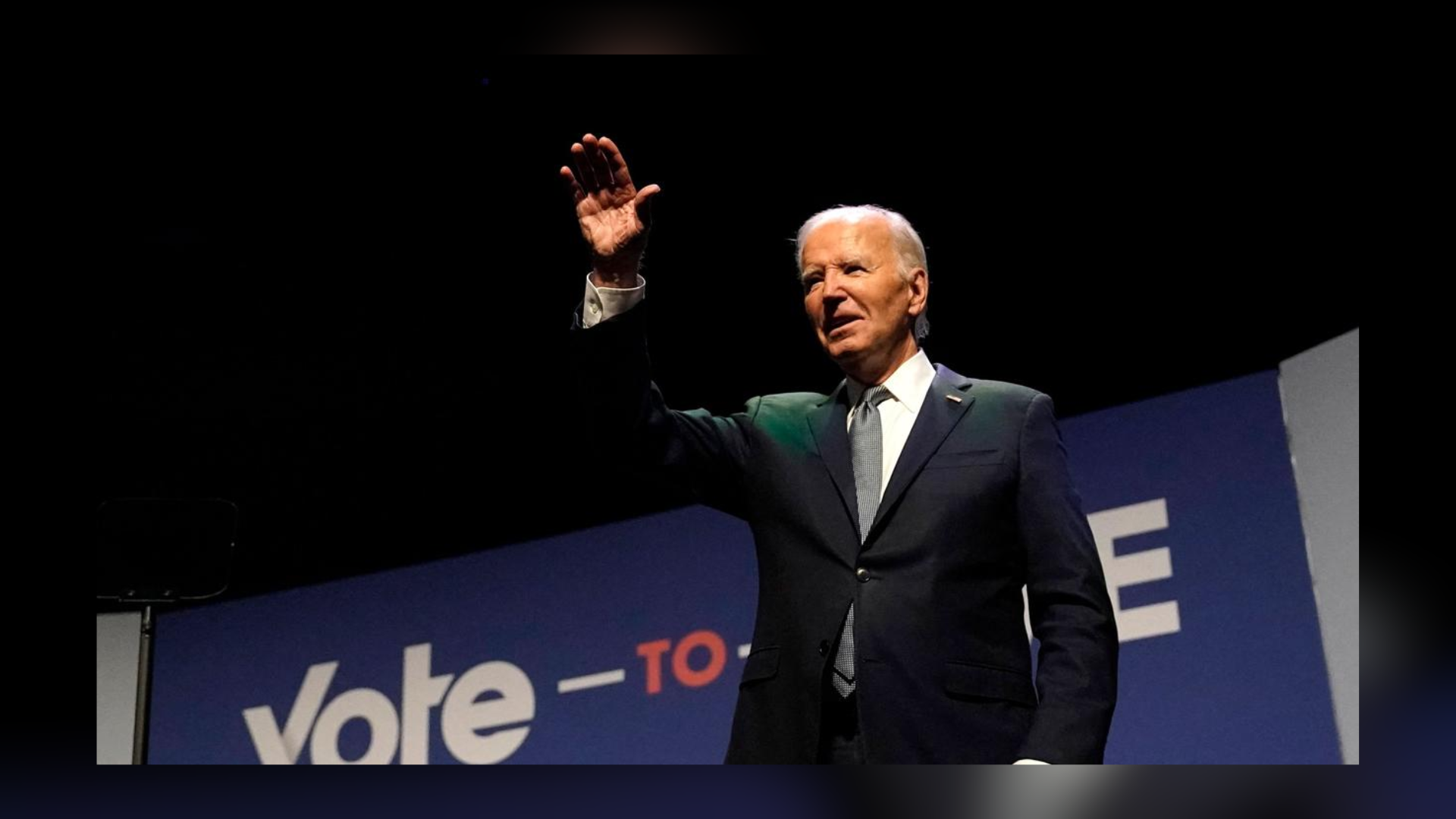June 27, 2024 marked a pivotal moment in President Joe Biden’s political career, following a widely-watched CNN debate with former President Donald Trump in Atlanta. According to a CNN poll conducted by SSRS, a significant majority of debate viewers believed Trump had outperformed Biden, with nearly 60% expressing doubts about Biden’s leadership capabilities.
Acknowledging Debate Shortcomings and Campaign Activities
The next day, June 28, Biden returned to the campaign trail, addressing criticisms of his debate performance during spirited speeches in North Carolina and New York. In North Carolina, he candidly acknowledged his debate shortcomings, saying, “I know I’m not a young man… I don’t debate as well as I used to.” Despite his admission, he affirmed his commitment: “I know how to tell the truth!”
Fundraising Efforts and Family Support
From June 29 to June 30, Biden attended fundraisers in the Hamptons and New Jersey before retreating to Camp David, where he received encouragement from his family to stay in the race.
Campaign Activities Leading to Independence Day
Throughout July 1 to July 7, Biden’s schedule included a mix of official duties and campaign events across Virginia, Wisconsin, and Pennsylvania.
Political Figures Weigh In
On July 2, Speaker Emerita Nancy Pelosi’s appearance on MSNBC sparked questions about Biden’s future when she remarked, “I think it’s a legitimate question to say, is this an episode, or is this a condition?”
First Calls for Withdrawal and White House Meetings
The same day, Rep. Lloyd Doggett of Texas became the first Democratic congressman to call for Biden’s withdrawal, drawing parallels to Lyndon Johnson’s decision under different circumstances.
High-Stakes White House Meeting and Media Controversy
July 3 saw Biden convene with Democratic governors at the White House, where frustrations emerged over his late-night event scheduling and need for more rest. Also on July 3, a controversy arose from a Philadelphia radio interview with Andrea Lawful-Sanders, leading to her departure after the station accused her of violating journalistic independence.
Biden’s Reflection and National Celebrations
On July 4, Biden admitted for the first time in an interview with Milwaukee radio host Earl Ingram that he had “screwed up” during the debate while celebrating Independence Day at the White House.
Media Appearances and Growing Concerns
During his Wisconsin visit on July 5, Biden sat down with ABC News’ George Stephanopoulos amid growing concerns within the party about his age and debate performance.
Internal Party Discussions and Defiant Stance
On July 7, House Majority Leader Hakeem Jeffries conducted a virtual call with House Democrats, where several members urged Biden to step aside. July 8 saw Biden defiantly reaffirm his commitment to the race in a letter to congressional Democrats, vowing to continue “running this race to the end.”
NATO Summit and Defections
During the same period, Biden engaged with the Congressional Black Caucus and hosted the NATO summit, marked by defections from his Democratic coalition.
READ MORE: Was Trump’s Attempted Assassination The Final Nail In Biden’s Political Coffin?
Public Statements and Fundraiser’s Op-Ed
On July 10, Pelosi’s appearance on MSNBC underscored uncertainties about her support for Biden, emphasizing, “It’s up to the president to decide if he’s going to run.” Renowned Democratic fundraiser George Clooney publicly urged Biden to step down in a New York Times op-ed on July 10, expressing doubts about Biden’s electoral prospects.
News Conference and Oval Office Address
July 11 witnessed Biden’s solo news conference and Oval Office address following an early gaffe, where concerns from Pelosi and former President Barack Obama were reported.
Congressional Outreach and Public Calls
On July 12, Biden engaged in a video call with the Congressional Hispanic Caucus amidst calls for him to withdraw. July 13 saw Biden meet with Sen. Chuck Schumer in Rehoboth amidst ongoing concerns, followed by an assassination attempt on Trump at his Pennsylvania rally.
Health Concerns and Public Support
Biden addressed the attempt on Trump’s life twice more on July 14, urging calm in political rhetoric from the Oval Office. On July 15, Biden addressed concerns about his age in an interview with NBC’s Lester Holt, continuing his defense. In Las Vegas on July 16, Biden met with the NAACP and BET News, reiterating his commitment to the race unless health concerns arose.
Increasing Pressure and Public Statements
On July 17, Rep. Adam Schiff publicly called for Biden to pass the torch, with reports of Sen. Chuck Schumer advising him to step aside. Biden tested positive for Covid on July 17, canceling events and self-isolating at his Rehoboth Beach house. On July 18, reports surfaced of Rep. Jamie Raskin’s private letter urging Biden to consider stepping down.
Political Figures’ Calls and Biden’s Resilience
Sen. Jon Tester became the second Democratic senator to call for Biden to withdraw on July 18. July 19 saw Biden’s campaign chair affirm his determination to stay in the race despite increasing isolation and calls to step aside. Sen. Joe Manchin joined calls for Biden to “pass the torch” on July 21, intensifying the pressure campaign.
Decision and Endorsement
Later on July 21, Biden announced on social media his decision not to seek reelection but to complete his presidential term, endorsing Vice President Kamala Harris for the Democratic ticket and planning a national address.
ALSO READ: What Comes Next After Joe Biden’s Departure From The US Presidential Race?




